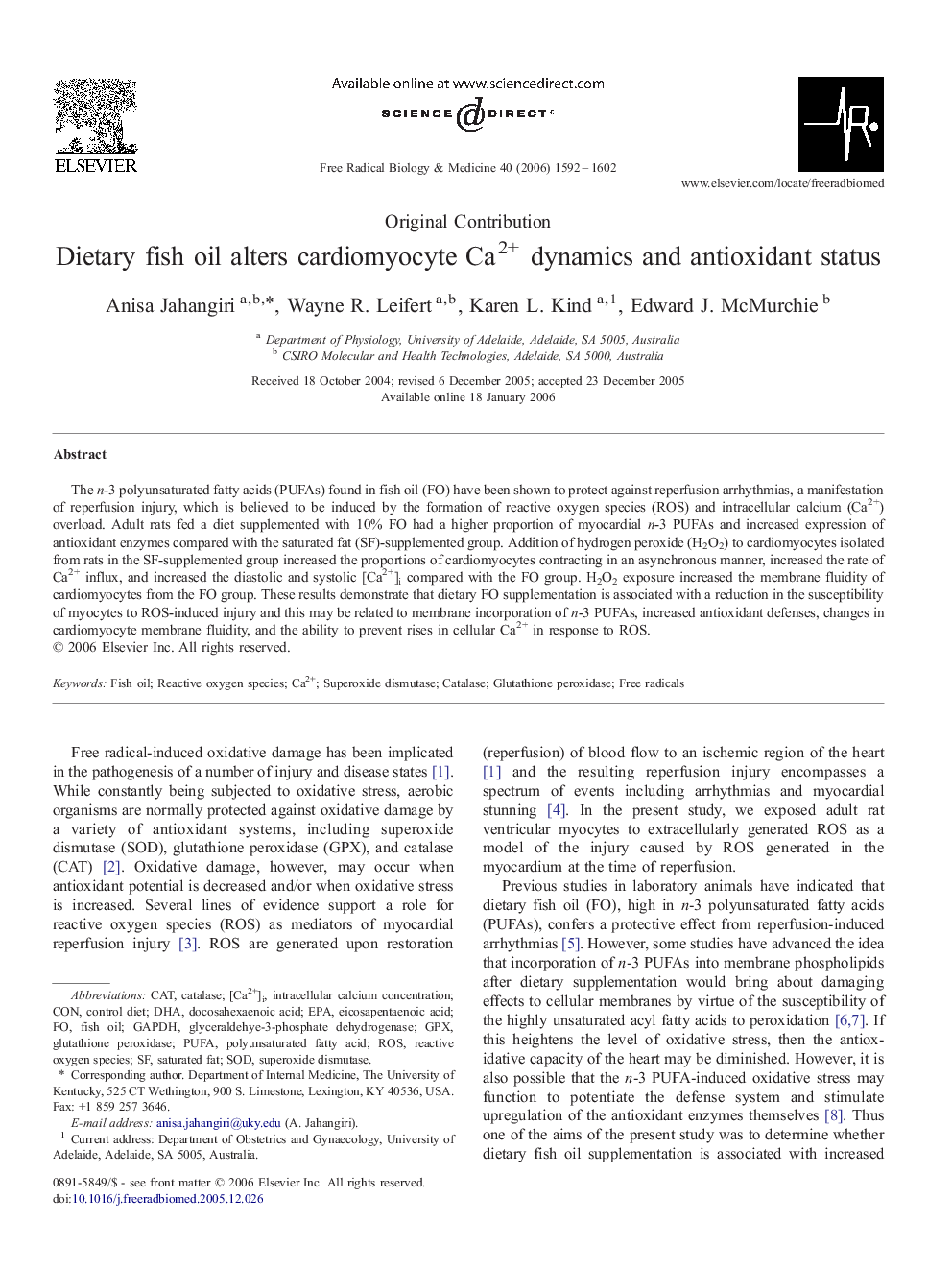| کد مقاله | کد نشریه | سال انتشار | مقاله انگلیسی | نسخه تمام متن |
|---|---|---|---|---|
| 1911418 | 1046816 | 2006 | 11 صفحه PDF | دانلود رایگان |

The n-3 polyunsaturated fatty acids (PUFAs) found in fish oil (FO) have been shown to protect against reperfusion arrhythmias, a manifestation of reperfusion injury, which is believed to be induced by the formation of reactive oxygen species (ROS) and intracellular calcium (Ca2+) overload. Adult rats fed a diet supplemented with 10% FO had a higher proportion of myocardial n-3 PUFAs and increased expression of antioxidant enzymes compared with the saturated fat (SF)-supplemented group. Addition of hydrogen peroxide (H2O2) to cardiomyocytes isolated from rats in the SF-supplemented group increased the proportions of cardiomyocytes contracting in an asynchronous manner, increased the rate of Ca2+ influx, and increased the diastolic and systolic [Ca2+]i compared with the FO group. H2O2 exposure increased the membrane fluidity of cardiomyocytes from the FO group. These results demonstrate that dietary FO supplementation is associated with a reduction in the susceptibility of myocytes to ROS-induced injury and this may be related to membrane incorporation of n-3 PUFAs, increased antioxidant defenses, changes in cardiomyocyte membrane fluidity, and the ability to prevent rises in cellular Ca2+ in response to ROS.
Journal: Free Radical Biology and Medicine - Volume 40, Issue 9, 1 May 2006, Pages 1592–1602